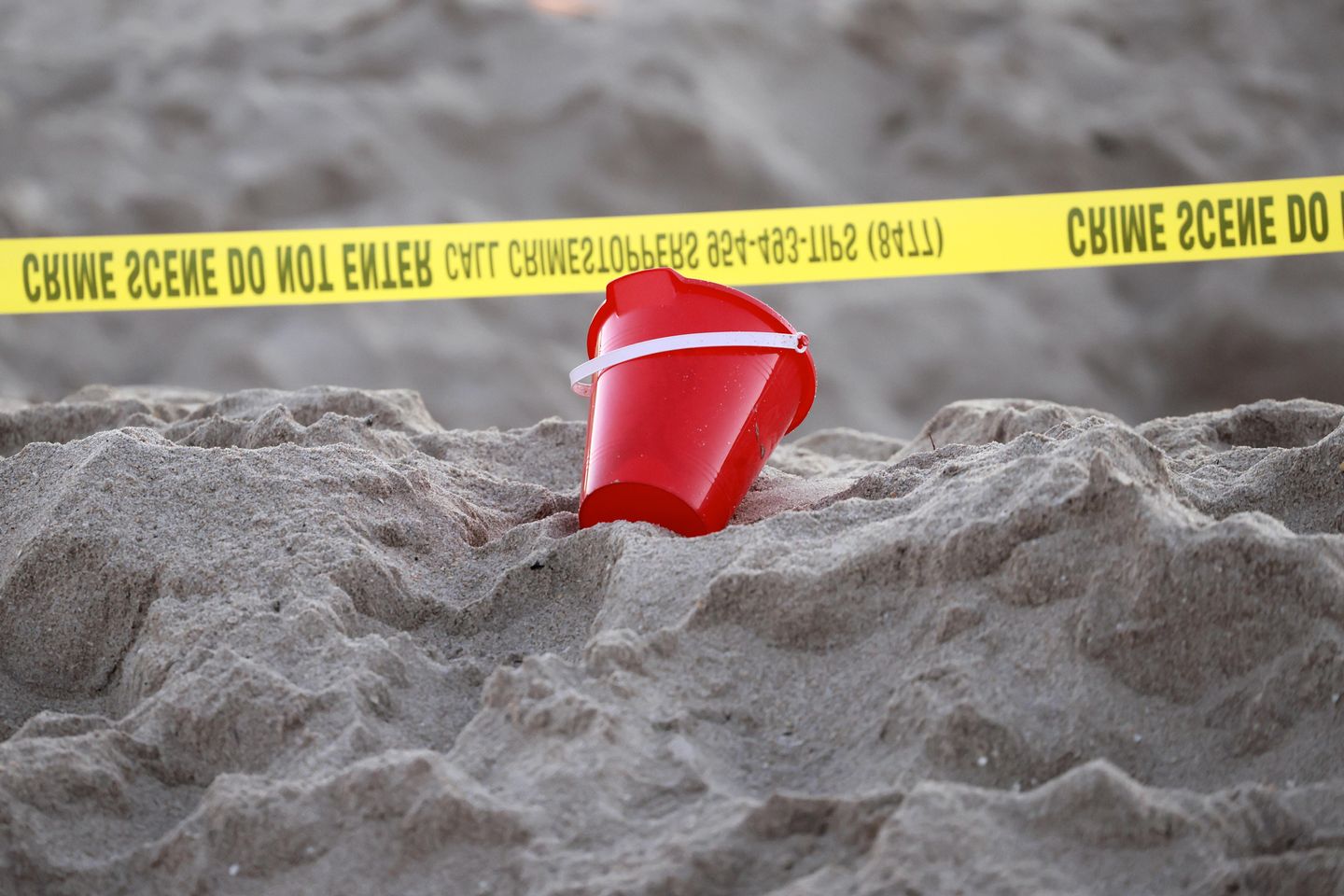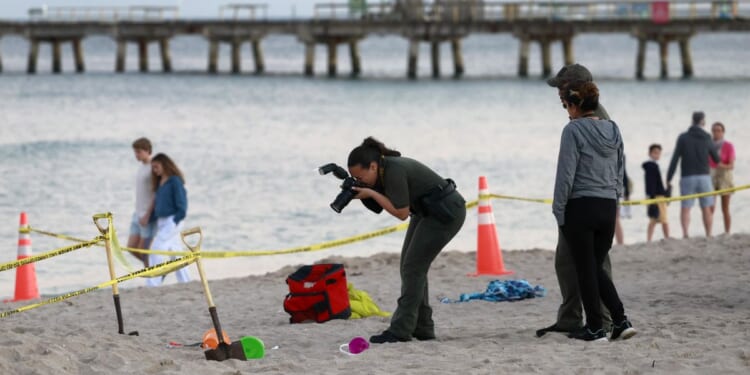
FORT LAUDERDALE, Fla. — The collapse of a sand hole that killed a 5-year-old Indiana girl who was digging with her brother on a Florida beach is an underrecognized danger that kills and injures several children a year around the country.
Sloan Mattingly died Tuesday afternoon at Lauderdale-by-the-Sea’s beach when a 4-to-5-foot-deep (1-to-1.5-meter) hole collapsed on her and her 7-year-old brother, Maddox. The boy was buried up to his chest, but the girl was fully covered. Video taken by a bystander shows about 20 adults trying to dig her out using their hands and plastic pails, but the hole kept collapsing on itself.
Lauderdale-by-the-Sea, a small enclave north of Fort Lauderdale, does not have lifeguards at its beach, so there were no professionals immediately available to help.
Sandra King, spokesperson for the Pompano Beach Fire-Rescue Department, said rescue crews arrived quickly and used shovels to dig out the sand and boards to stabilize the hole, but the girl had no pulse. King said paramedics immediately began resuscitation efforts, but Sloan was pronounced dead at the hospital. The boy’s condition has not been released.
King said the children’s parents were extremely distraught and the paramedics who treated the children had to be relieved from their shift.
“It was a horrible, horrible scene. Just imagine one minute your children are playing in the sand and then in seconds you have a life-threatening situation with your little girl buried,” said King, whose department services Lauderdale-by-the-Sea.
News reports and a 2007 medical study show that about three to five children die in the United States each year when a sand hole they are digging at the beach, a park or at home collapses on top of them. Others are seriously injured and require CPR to survive.
Those who died include a 17-year-old boy who was buried at a North Carolina beach last year, a 13-year-old who was digging into a sand dune at a state park in Utah and an 18-year-old who was digging with his sister at a New Jersey beach. Those two accidents happened in 2022.
“The risk of this event is enormously deceptive because of its association with relaxed recreational settings not generally regarded as hazardous,” the New England Journal of Medicine study concluded.
Lifeguards say parents need to be careful about letting their children dig at the beach and not let them get too deep.
Patrick Bafford, the lifeguard manager for Clearwater, Florida, said his staff will warn families if a hole gets too big but sometimes they aren’t noticed in time.
“We have had events where people have had close calls or died because of a collapse,” he said. “You want them to have fun, (but) there’s a difference between fun and a hazard they might face. It’s hard really for people to understand that the beach can be a hazard. Bad things can still happen no matter what. Use good judgment.”
Shawn DeRosa, who runs a firm that trains lifeguards, said “many people don’t think through the risks in allowing children to dig deep or wide holes.”
“They know that the sand might slide down or that a wall could collapse, but they don’t seem to envision their child being buried in the sand so quickly,” he said. “Nor do they appreciate the real challenge in getting the child out of the sand once the collapse has occurred.”
___
Associated Press writer Curt Anderson in Clearwater, Florida, contributed to this report.

